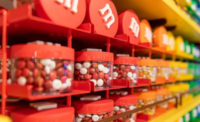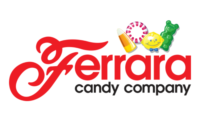According to a recent report issued by London-based Euromonitor International, chocolate manufacturers are introducing more Fair Trade and “ethically sourced” chocolates in response to consumers searching for more socially conscious products.
The report cites Swedish confectionery manufacturer Cloetta AB’s recent decision to launch a range of Fair Trade chocolates under theCloetta Goodname as an example of this trend. The new line will include four varieties - milk chocolate, mint crisp, hazelnut, and cashew with cranberries - made from certified Fair Trade chocolate.
Although Fair Trade chocolate remains a niche category in the Swedish market, increasing consumer concern for ethically sourced products may pave the way for future growth.
Interestingly, the author of the report notes that Kraft’s recent takeover of Cadbury and a number of strategic decisions elsewhere in the industry could contribute to the commercial success of Fair Trade chocolate lines such asCloetta Goodnot only in Sweden, but in other developed markets around the world.
Global demand for certified Fair Trade chocolate has been increasing steadily, and Euromonitor’s research suggests that international chocolate manufacturers have tried to adjust their corporate strategies accordingly.
Chocolate supplier and manufacturer Barry Callebaut, for instance, stated that global demand for Fair Trade-certified products increased by 50% in 2009. Furthermore, the company has expressed its commitment to increase investment in order to meet the requirements of ethical certification such as UTZ and the Rainforest Alliance.
Nevertheless, Barry Callebaut’s chief executive, Juergen Steinemann, remained unconvinced in a recent interview about the level of large-scale demand for Fair Trade-certified chocolate and expressed his belief that it will take many years before certified products become mainstream, Euromonitor reveals.
The report also speculates on the implications to Fair Trade chocolate following Kraft’s takeover of Cadbury. The American manufacturer, which incurred a £7 billion debt to fund the takeover, might embark on a cost-reduction plan that could slow Cadbury’s current strategic expansion into the Fair Trade segment, the author says. Cadbury’s deal with the Fairtrade Foundation in mid-2009 was seen as the movement’s biggest coup, asDairy Milkrepresented the first mass-market chocolate brand in the world to use Fair Trade cocoa.
Euromonitor points out that Jonathan Horrell, U.K. corporate affairs director for Kraft Foods, recently responded to such questions by stating that the company already worked “extensively” with sustainably-sourced cocoa and coffee suppliers, and planned to maintain Cadbury’s contracts with the Fairtrade Foundation. Despite these assertions, there was no confirmation whether Kraft would continue Cadbury’s ongoing talks to expand its use of Fair Trade cocoa beans to other brands.
The Euromonitor report concludes that many industry observers believe that the new Kraft-Cadbury organization might opt to focus on the extension of Kraft’s Rainforest Alliance agreements for otherCadbury brands.
Kraft recently signed up with the Rainforest Alliance, an organization that promotes conservation and fair dealings with small growers, to supply some of the coffee beans used for itsKenco coffee brand.
Fair Trade campaigners, however, believe the Rainforest Alliance’s production requirements are far less strict than those regulating certified Fair Trade products. This is because the Rainforest Alliance places an emphasis on the preservation of the environment and the sustainability of production rather than on strict production standards and the payment of higher prices to achieve social justice.
Crucially, the Rainforest Alliance scheme offers no minimum or guaranteed price, although farmers under the scheme still gain financially in relation to those who are not signed up for any such scheme.
Kraft’s strategy is in line with other large manufacturers in the industry, including Mars, Inc., which outlined in April 2009 its plans to use only “sustainable” cocoa for its products by 2020. TheM&M’SandSNICKERS maker teamed up with the Rainforest Alliance and drew up plans for the not-for-profit organization to certify 100,000 metric tons of cocoa annually for use in its products.
Euromonitor’s research suggests that if large international confectionery manufacturers continue to sign with the Rainforest Alliance, this might provide an excellent business opportunity for local chocolate manufacturers in developed markets to differentiate themselves via Fair Trade certification.
Companies such as Cloetta AB in Sweden could seize the opportunity to specialize in the “niche Fair Trade market” and target more demanding ethical consumers who are willing to pay a premium for products offering “stricter” social value properties.
The analyst points out that this could, in turn, lead to further segmentation of premium chocolate confectionery into semi-ethical (and more affordable) Rainforest Alliance-certified chocolate offerings and more expensive Fair Trade-certified lines. Where and when each company - small or large - should position itself is a decision that should be taken sooner rather than later, before the number of players in the ethical chocolate market becomes too large for it to take on new entrants, the author concludes.
For more information, visitwww.euromonitor.com.
More Chocolate Manufacturers Moving to Ethical Sourcing
Looking for a reprint of this article?
From high-res PDFs to custom plaques, order your copy today!





